Most adults don’t eat enough potassium, which is discerning since potassium is an essential electrolyte. Potassium helps to regulate both our blood levels and our fluids. It’s something our body really needs to stay healthy, so incorporating more potassium into your diet is crucial for your overall health.
The daily recommended intake of potassium is 3 400 milligrams for adult males and 2 600 milligrams for adult females. Are you within those guidelines? If not, here are some foods that can help you boost your potassium intake.
What is Food Potassium
Potassium is a mineral that acts as an electrolyte to keep the levels of fluid INSIDE of our cells normal. The counterpart to potassium is Sodium (salt), which helps regulate the levels of fluids OUTSIDE of our cells.
Potassium is especially crucial for our kidneys and our hearts. Potassium also helps out muscles contract and helps to support normal blood pressure. Potassium, then, supports muscle contraction, helps our hearts function properly, and is essential for regulating water balance in our bodies.
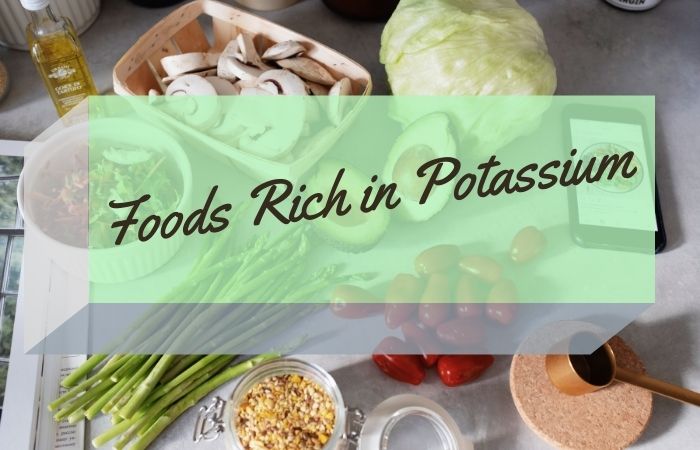
Low Potassium: What are the risks
If you eat a healthy diet, then you should have enough potassium in your body. However, some people have ‘low potassium’. Low potassium comes with a lot of risks. For example, low potassium is associated with a higher risk of: stroke, arthritis, heart disease, high blood pressure, cancer, and even infertility! (1)
So it’s very important to incorporate healthy, high-potassium foods into your diet.
Do All Foods Have Potassium
Most foods have SOME potassium, but when it comes to potassium, not all foods are created equal. Leafy greens, fruits, and nuts, for example, have a lot more potassium than grains, white rice, pasta, and cheeses. We’ve created a list foods that are HIGH in potassium, so if you want to add more potassium to your diet, eating the foods on this list is a great place to start!
15 Healthy Foods Are Rich in Potassium
1. Spinach
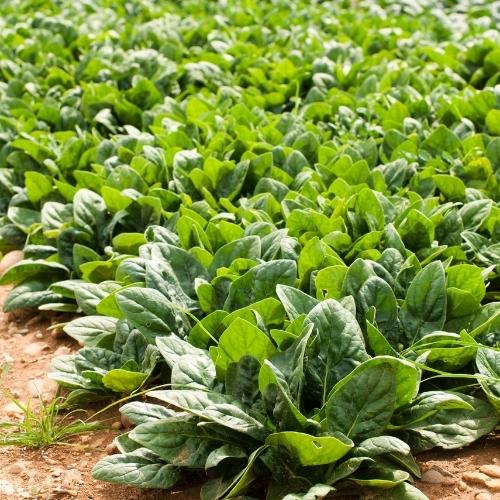
There’s a reason the beloved cartoon character Popeye always cracked open a can of spinach. Spinach is a very nutritious vegetable, with a wide assortment of nutrients. And for those who are looking to boost their potassium intake, then spinach is a great option!
One cup of cooked spinach contains 839 mg of potassium. Cooked spinach can be added to things like pasta, soups, and even a stir-fry. But spinach can also be eaten raw, and makes a wonderful base for a healthy, potassium-rich salad, or go ahead and add it to a sandwich to increase the nutritional content of your lunch.
Along with having a lot of potassium, spinach also has four-time recommended daily intake of vitamin Z. It also boasts ten times the recommended daily intake of vitamin K, and 85% of the recommended daily intake of manganese. And it doesn’t stop there; spinach contains antioxidants, which can help protect your body against cellular damage.
2. Tomatoes
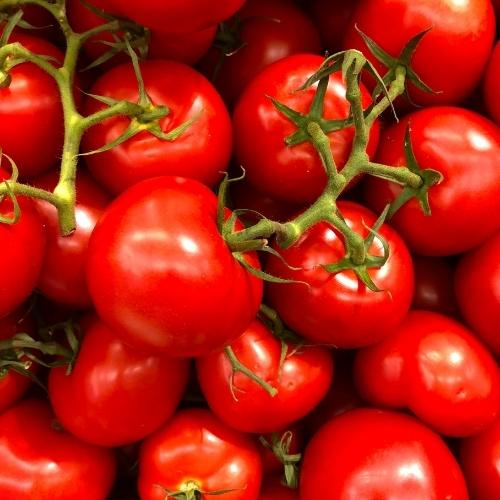
Whether you call them a fruit or a vegetable (although Tomatoes are ‘technically’ a fruit), tomatoes are loaded with potassium. And one of the easiest ways to incorporate more tomatoes into your diet is through tomato sauce.
Tomato sauce is a staple for a lot of dishes. Spaghetti, lasagna, ragu, and butter chicken, for example, all feature the rich, delicious tomato sauce. Tomato sauce is also an excellent way for children to get more potassium; instead of serving them sliced tomatoes, serve them up some noodles slathered in the sauce!
They’ll still get all the nutritional benefits of tomatoes, but they won’t even know it. One cup of tomato sauce contains, on average, 728 mg of potassium, so you can eat your pasta, and get your ‘punch of potassium’ as well.
Raw tomatoes are also an option. Diced tomatoes can be added to salads. Sliced tomatoes can be added to sandwiches. Or cherry tomatoes can be eaten all on their own as a healthy, hand-held snack.
3. Oranges
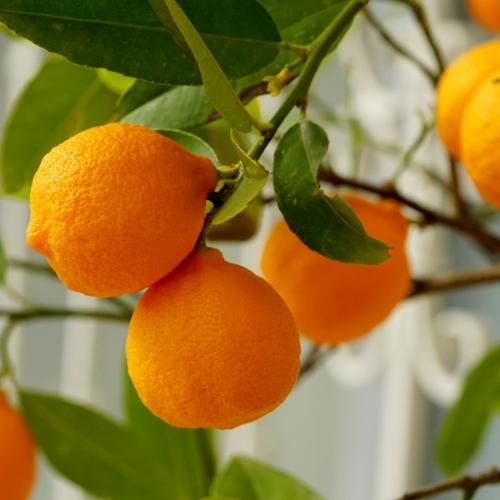
Oranges have bragging rights to ‘vitamin C’; we all look to oranges when we need a vitamin C boost. However, did you know that oranges are also high in potassium? Just one cup of orange juice contains 496 mg of potassium! That’s a lot of potassium!
And along with both Vitamin C and potassium, oranges are also rich in folate, thiamine, antioxidants, and vitamin A. So adding a cup of orange to your morning meal can help you start your day off in the right direction. Orange juice can also be added to smoothies to add a little sweetness.
Few things are as healthy as a ‘green smoothie’, but sometimes all the leafy greens can make the smoothie a bit bitter. So by splashing in a little orange, the smoothie becomes more palatable, and you get more potassium. Just be aware of any added sugars in the orange juice. Some pre-packaged orange juices can have added sugar, so it’s best to look for ‘pure orange juice’.
Oranges, themselves, are also a wonderful snack. Juicy and sweet, raw oranges can help stabilize your blood sugars, and give you an afternoon boost. Plus, most children love oranges, so you can rest assured knowing that you are giving them a snack they love, and some extra calcium.
4. Avocados
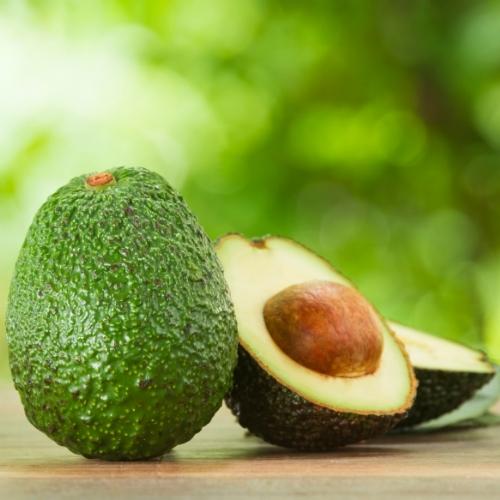
Avocado toast is all the rage, and lovers of this trendy new craze can delight in the fact that they’re not just eating something ‘new’, they’re eating potassium, too. Avocados are an excellent choice for people who want more potassium.
One cup of mashed up avocados contains a whopping 1,120 mg of potassium! Avocados are also associated with a long list of health benefits. Eating avocados regularly has been shown to reduce body weight, and lower the risk of metabolic syndrome.
So avocados can actually help people maintain healthier body weight by helping their bodies metabolize food easier. Plus, avocados are considered a ‘heart healthy’ food because they are high in heart-healthy monosaturated fats. So that avocado toast isn’t just trendy; it’s also good for your heart.
Mash up some avocados and add a little cilantro and salt for healthy, homemade guacamole. (You can even add some diced tomatoes for a double punch of potassium.) Toss some avocado into your next salad for a different flavor profile. Or add some sliced avocado to your next smoothie.
5. Salmon
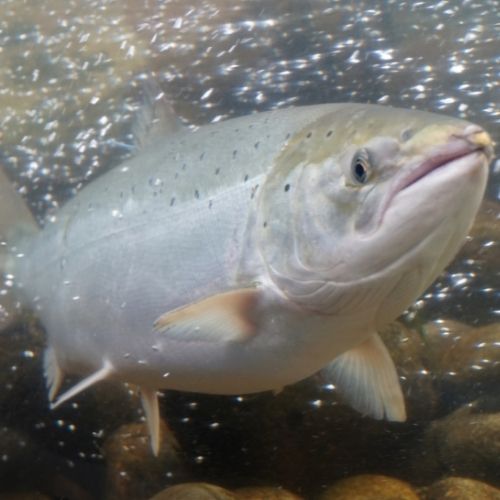
As far as fish go, salmon is a ‘super-food’! But along with the high amounts of protein and heart-healthy omega-3 fats, salmon also boasts a significant amount of potassium. Just half a filet of salmon (or 178 grams of salmon), contains 684 mg of potassium. (2)
Scientific studies show that a diet that is rich in ‘fatty fish’ can decrease one’s risk of heart disease. So adding salmon to your diet is a great way to protect your heart. Salmon can be very easy to prepare; as simple as wrapping a fillet in tin foil, sprinkling it with a bit of lemon juice, and popping it in the oven.
Salmon can be a little hard to find fresh, as it depends on whether or not it’s in season. So if you want to eat more salmon, go ahead and buy frozen fillets if you don’t have many fresh options. Frozen fillets still have all the nutritional benefits of fresh salmon, and you can keep them on hand in your freezer.
6. Beets
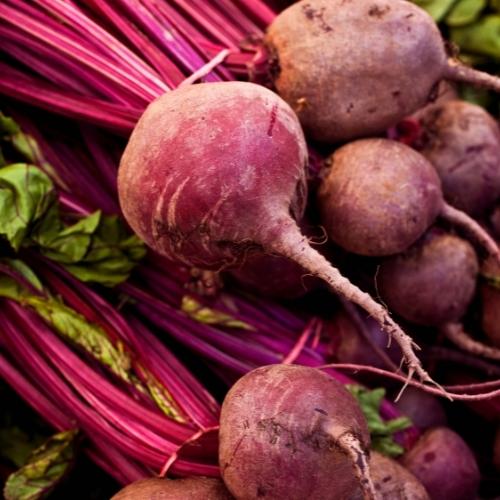
Beets are beautiful. Yellow, orange, red, deep purples – beets come in a plethora of enticing colors. For this reason, they add visual appeal to the plate. But along with being beautiful, beets are also a great source of potassium. Just half a cup of boiled beets (or roughly 85 grams) has 259 mg of potassium.
Furthermore, beets also have folate, nitrates, and manganese, and the pigment that gives beets their lovely colors works as an antioxidant. Not sure what to do with your beets? Beets are naturally quite high in sugars, so they can be very sweet.
In fact, you might be surprised by how sweet they are! Boiled beets are a lovely side dish, as well as a nice base for a salad. Cold beet soup is also a refreshing and light option for those hot summer days.
7. White Beans
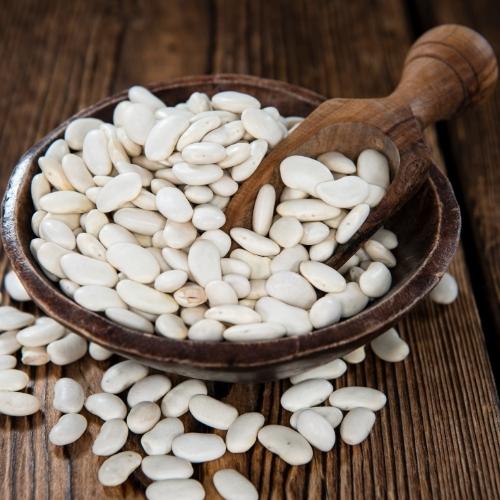
Adding more beans to your diet isn’t just good for your wallet (since beans are far more inexpensive than meat), they’re also good for your waistline. But when it comes to increasing your potassium intake, then you might want to take a look at white beans. Half a cup of white beans has 421 mg of potassium.
White beans also boast a good amount of iron and calcium, as well as 18% of your daily recommended intake of fiber. White beans are an excellent substitute for some meats. For example, you can substitute white beans in lieu of ground hamburger in a chili. Or, if you want to keep that chili nice and meaty, then just add white beans in.
White beans can also be added to several different kinds of soups, like minestrone. You can also search the internet for ‘white bean’ recipes – you may be surprised by all the different ways you can add white beans to your diet.
8. Parsnips
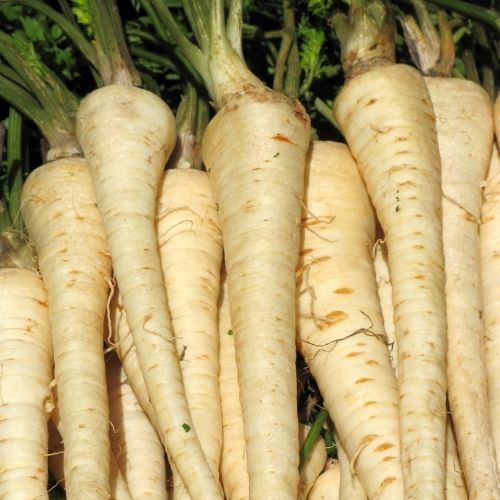
If you’re not familiar with parsnips, don’t worry, you’re not alone. Parsnips aren’t exactly as widely known as some of its other root vegetable counterparts, like carrots. But if you haven’t had parsnips before, now’s the time, because these white root vegetables are packed with potassium.
Just one cup of parsnips (or 160 grams) has 570 mg of potassium. And in addition to their potassium content, parsnips also have a number of other health benefits.
Parsnips are high in folate, which is important for overall tissue and skin health. Folate is also essential in fetal growth, so expecting moms would do themselves well to add a few parsnips into their diets. And, parsnips also have soluble fiber, which can be beneficial in reducing cholesterol levels.
9. Yogurt
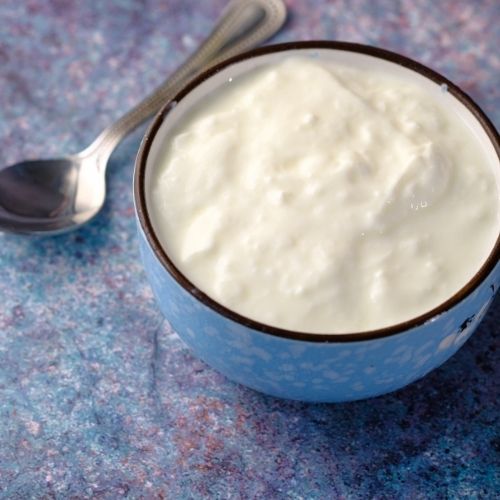
Yogurt is creamy and delicious. It’s also rich in potassium. Just one cup of yogurt contains 380 mg of potassium. Yogurt also contains bacteria (because it’s a fermented food) that is good for the overall health of your gut. But not all yogurt is created equal.
Some yogurt is painfully high in sugars and additives, which negates some of its health benefits. You’re best option is to buy plain yogurt and to sweeten it yourself by adding nuts, honey, fresh fruit, or even a little maple syrup.
10. Coconut Water
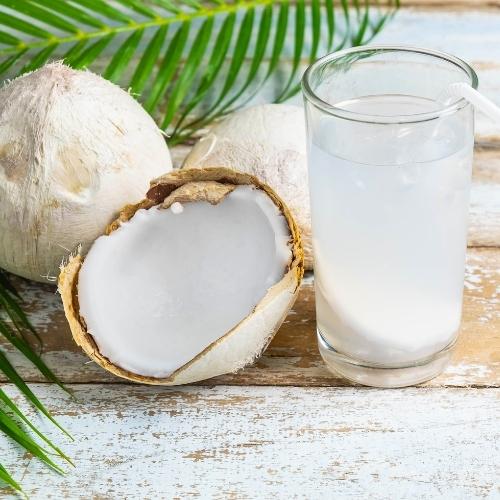
Did you know that coconut water is considered by some nutritionists to be more effective than plain water at rehydrating? Coconut water is extremely high in electrolytes, so if you’re an athlete, or need some serious rehydrating, then coconut water is an excellent choice. And, one of the electrolytes found in coconut water is – you guessed it – potassium!
Just one cup of coconut water contains 600 mg of potassium. Plus, unlike other electrolyte-packed sports drinks, coconut water doesn’t have a lot of sugar, so coconut water is a much healthier choice for a rehydration-boost.
11. Watermelon
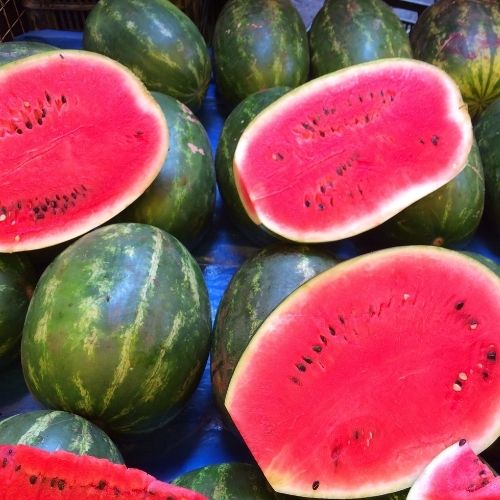
Hydrating. Sweet. Juicy. Is there anything more satisfying than a slice of cold watermelon on a hot day? Watermelon has a high water content, so it’s hydrating. It’s also high in fibre, and vitamins A and C. And yes, that delicious and juicy fruit also has potassium.
Two slices of watermelon (or about 575 grams) has 14% of your recommended daily intake of potassium. So go ahead and slice up that melon – your body will thank you.
12. Brussel Sprouts
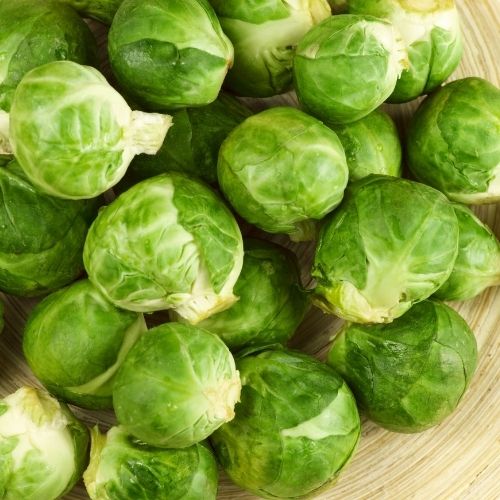
Brussel sprouts have a bit of a bad rap. It’s mostly because they’re a bit on the bitter side, and are somewhat of an acquired taste. But biting into a brussel sprout can help you increase your potassium intake, because these bitter little Brussels have about 500 mg of potassium per one cup (cooked).
So if you find brussel sprouts a little too bitter, you might want to try them again. And again. And again, until you acquire a taste for these potassium rich veggies.
13. Swiss Chard
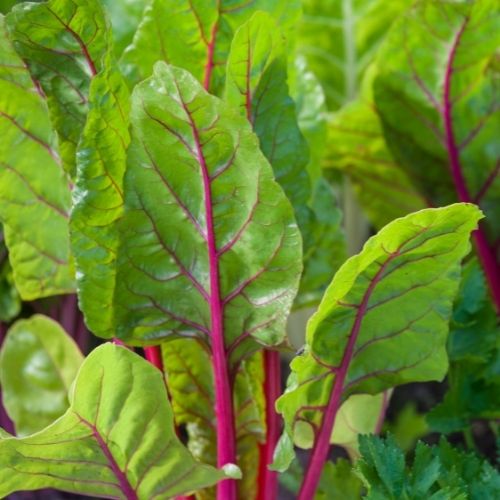
If you really want a good dose of potassium, then have yourself a cup of Swiss chard. Just one cup of cooked Swiss chard boasts 960 mg of potassium.
Swiss chard is a leafy green that is often prepared as a simple sauteed. Just remember to remove the stems before you eat it – it’s really only the leafy part you want. You can also chop it up and add it to a salad or a soup, or even toss it into a stir-fry. It’s also a nice addition to an omelet or Frittata.
14. Sweet Potatoes
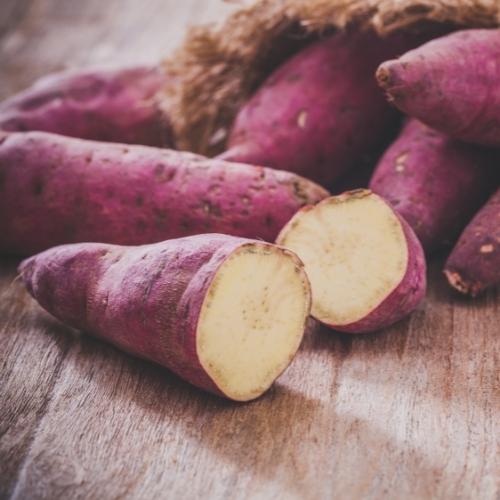
Unlike their plain white counterpart, sweet potatoes have an inherent sweetness to them, hence their name. This makes sweet potatoes a great way to incorporate more potassium into your diet. One cup of sweet potatoes (mashed) has 16% of your daily recommended intake of potassium.
Sweet potatoes also have a lot of Vitamin A, which is great for your eye health. Sweet potatoes are great in a soup, great as a side dish, and are, of course, the star of several desserts, like sweet potato pie.
15. Bananas
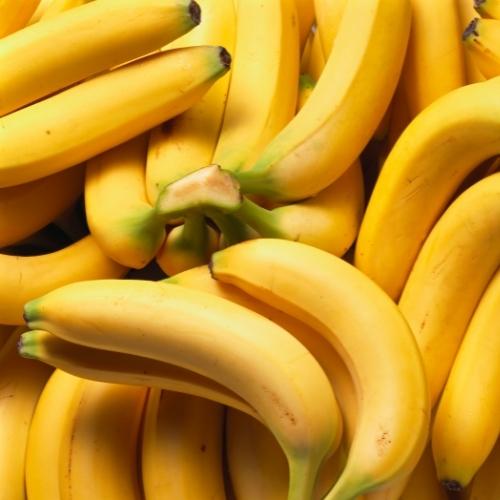
To round off our list of 15 Foods High in Potassium, we’re finishing off with the mighty banana. Bananas are a ‘go-to’ for people who need more potassium, as bananas are widely known to contain a lot of this important mineral.
One banana has 451 mg of potassium, so by eating just one banana a day, you’re falling around 20% of your daily recommended potassium intake. Bananas are inexpensive and easy to eat. They are a great snack when you’re ‘on-the-go’. They’re also a great addition to smoothies.
And if you’ve never had homemade banana ice cream, then you’re missing out. To make it, simply cut up some bananas, place them in freezer safe plastic baggies, and freeze them. Once frozen, toss them into a blender and you have yourself a tasty, very nutritious, potassium-filled dessert.
Conclusion
Our bodies need potassium. Potassium is essential for regulating the fluids inside our cells, for supporting a healthy heart, and for helping our muscles to contract. And while most foods contain some amount of potassium, some foods are far more potassium-rich than others.
And as you can see from our list, a lot of foods that are high in potassium are easily accessible and easy to prepare. It can be as simple as eating a banana, or adding some tomato sauce to your pasta.
So the next time you’re looking for a food that’s high in potassium, give one of the potassium-high foods on this list a try! Your body will thank you, and you can rest assured knowing that you are feeding yourself foods that will help you become a healthier ‘you.
